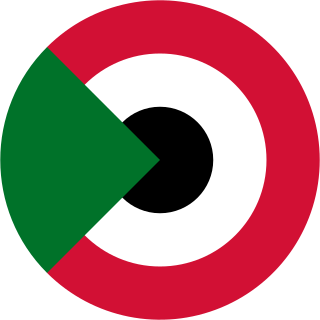
The Sudanese Air Force is the air force operated by the Republic of the Sudan. As such it is part of the Sudanese Armed Forces.

The Peace and Security Council (PSC) is the organ of the African Union in charge of enforcing union decisions. It is patterned somewhat after the United Nations Security Council. The PSC is also the main pillar of the African Peace and Security Architecture (APSA), and works with other pillars of the APSA in order to promote "peace, security and stability in Africa". The specific goal of the Peace and Security Council (PSC) is the "prevention, management and resolution of conflicts". To achieve these goals, it involves subsidiary organizations such as the Military Staff Committee and the Committee of Experts.

United Nations Security Council resolution 1591, adopted on 29 March 2005, after recalling resolutions 1547 (2004), 1556 (2004), 1564 (2004), 1574 (2004), 1585 (2005), 1588 (2005) and 1590 (2005) on the situation in Sudan, the council placed a travel ban and asset freeze on those "impeding the peace process" in Darfur.

United Nations Security Council Resolution 1928, adopted unanimously on June 7, 2010, after recalling resolutions 825 (1993), 1540 (2004), 1695 (2006), 1718 (2006), 1874 (2009) and 1887 (2009) on the topics of North Korea and nuclear weapons, the Council extended the mandate of a panel of experts monitoring sanctions against the country until June 12, 2011.
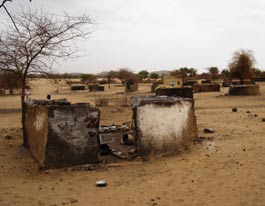
United Nations Security Council Resolution 1945, adopted on October 14, 2010, after recalling previous resolutions on the situation in Sudan, the Council extended the mandate of an expert panel monitoring an arms embargo and other sanctions on groups that "impede peace in Sudan" until October 19, 2011.
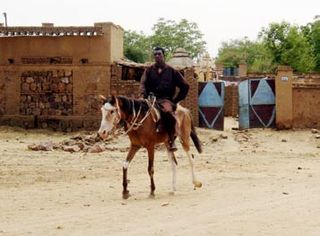
United Nations Security Council Resolution 1982, adopted unanimously on May 17, 2011, after recalling all previous resolutions on the situation in Sudan, the Council extended the mandate of an expert panel monitoring the arms embargo and other sanctions against the country until February 19, 2012.

United Nations Security Council Resolution 1651, adopted unanimously on 21 December 2005, after recalling previous resolutions on the situation in Sudan, particularly resolutions 1556 (2004) and 1591 (2005), the Council extended the mandate of an expert panel monitoring sanctions against and violations of human rights in the Darfur region until 29 March 2006. It was the last Security Council resolution adopted in 2005.
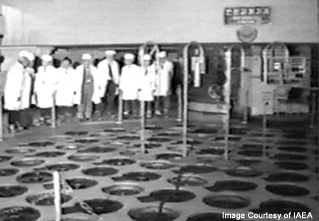
United Nations Security Council Resolution 1985, adopted unanimously on June 10, 2011, after recalling resolutions 825 (1993), 1540 (2004), 1695 (2006), 1718 (2006), 1874 (2009), 1887 (2009), 1928 (2010) on the topics of North Korea and nuclear weapons, the Council extended the mandate of an expert panel monitoring sanctions against the country until June 12, 2012.

United Nations Security Council Resolution 1665, adopted unanimously on March 29, 2006, after recalling previous resolutions on the situation in Sudan, particularly resolutions 1556 (2004), 1591 (2005) and 1651 (2005), extended the mandate of an expert panel monitoring sanctions against and violations of human rights in the Darfur region until September 29, 2006.

United Nations Security Council Resolution 1713, adopted unanimously on September 29, 2006, after recalling previous resolutions on the situation in Sudan, particularly resolutions 1556 (2004), 1591 (2005), 1651 (2005) and 1665 (2006), the Council extended the mandate of an expert panel monitoring sanctions against and violations of human rights in the Darfur region until September 29, 2007, and requested the Secretary-General to add another expert to the team.
Am Dafok, also spelt Am Dafock, is a Sub-Prefecture and town in the Vakaga prefecture of Central African Republic (CAR). The town sits on the CAR side of the border with Sudan; on the Sudanese side of the border lies Um Dafuq in the state of South Darfur.
United Nations Security Council Resolution 1779 was unanimously adopted on 28 September 2007.
United Nations Security Council Resolution 1891 was unanimously adopted on 13 October 2009.
United Nations Security Council Resolution 1841 was unanimously adopted on 15 October 2008.

United Nations Security Council Resolution 2035 was unanimously adopted on 17 February 2012.
United Nations Security Council Resolution 2138, adopted on 13 February 2014, extended the mandate of the Sudan Sanctions Committee and requesting the committee's panel of experts provide a final report on its findings by January 2015. It noted with regret that armed groups in Darfur persisted in committing violence against civilians, and described an intention to impose further targeted sanctions against those responsible.
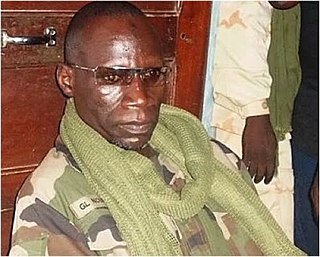
Noureddine Adam is the leader of the Central African rebel group, the Popular Front for the Rebirth of Central African Republic (FPRC) in the Central African Republic Civil War. He was sanctioned by the United Nations Security Council in May 2014. He was indicted by the International Criminal Court in July 2022 as a suspect of crimes against humanity and war crimes.

The UN Security Council Sanctions Committee on North Korea is a subsidiary body established in 2006 by the UN Security Council's resolution 1718 in response to North Korea's first nuclear test and its other nuclear proliferation efforts.

United Nations Security Council Resolution 2623 called for the eleventh emergency special session of the United Nations General Assembly on the subject of the 2022 Russian invasion of Ukraine. Albania and the United States introduced the resolution before the United Nations Security Council, which adopted it on 27 February 2022. Russia voted against while China, India and the United Arab Emirates abstained. As this was a procedural resolution, no permanent member could exercise their veto power.

The United Nations Security Council Resolution 2342 was unanimously adopted on 23 February 2017. The resolution renewed sanctions against individuals and entities engaging in acts that threatened the peace and stability of Yemen until 26 February 2018. The resolution prohibited the sale, supply and transfer of weapons to these individuals and entities, as well as to former Yemeni President Ali Abdullah Saleh, Houthi commanders Abdullah Yahya al Hakim and Abd al-Khaliq al-Huthi. The Security Council expressed concern at the situation and ongoing violence in Yemen. The council also extended the mandate of the Panel of Experts on Yemen until 28 March 2018.















